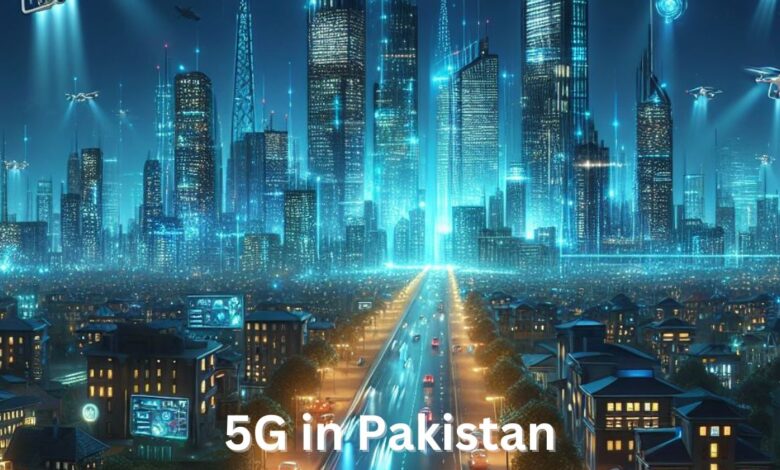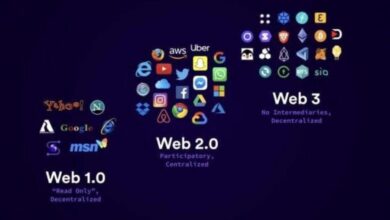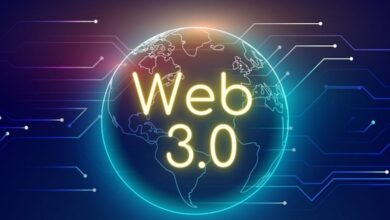5G in Pakistan: Embracing the Digital Dawn, Navigating the Unknown

Pakistan stands at the precipice of a transformative era – the arrival of 5G in Pakistan. This next-generation network promises mind-boggling speeds, near-instantaneous responsiveness, and a future woven with interconnected possibilities. But amidst the excitement, it’s crucial to adopt a balanced lens, exploring both the electrifying prospects and the uncharted challenges that lie ahead.
Table of Contents
5G’s Booming Potential:
Speed Demon Unleashed:
Imagine downloading movies in under a minute, streaming crystal-clear video without buffering, and experiencing virtual reality that feels eerily real. 5G boasts internet speeds up to 100 times faster than 4G, unlocking a world of seamless connectivity and unparalleled responsiveness.
Bridging the Digital Divide:
In remote corners of Pakistan, connectivity remains a distant dream. 5G’s wider reach and improved signal penetration can bridge this digital divide, connecting communities to essential services like healthcare and education. This empowers individuals, fosters inclusive growth, and paves the path for a truly connected nation.
Smart Cities, Smarter Living:
Imagine traffic lights anticipating congestion, waste collection optimized by real-time sensor data, and remote monitoring of critical infrastructure for proactive maintenance. 5G forms the backbone of smart city initiatives, enabling interconnected infrastructure that enhances public safety, optimizes resource management, and improves overall quality of life.
Industrial Revolution 2.0:
For Pakistan’s industries, 5G is a game-changer. Its ultra-reliable low-latency communication (uRLLC) empowers automation, remote machine control, and real-time data analysis. This translates to increased productivity, streamlined operations, and a new era of efficiency in manufacturing, agriculture, and countless other sectors.
Embracing the Challenges 5G in Pakistan:
Building the Bedrock:
Rolling out 5G infrastructure across Pakistan’s diverse landscape requires significant investment and meticulous planning. Expanding fiber optic networks, installing towers strategically, and ensuring quality coverage in rural areas are crucial hurdles to overcome.
Bridging the Affordability Gap:
5G technology and devices currently come at a premium, potentially creating a digital divide within the population. Finding innovative ways to make 5G affordable and accessible for all is essential for inclusive growth and ensuring everyone benefits from this technological leap.
Fortressing the Cybersphere:
With increased connectivity comes increased vulnerability. Robust cybersecurity measures, data privacy regulations, and user awareness are crucial to mitigate cyberattacks and ensure a secure 5G environment for all.
Ethical Considerations:
5G raises questions about data privacy, surveillance, and the potential misuse of technology. Addressing these concerns through open dialogue, responsible development, and ethical frameworks is necessary to ensure technology serves humanity, not exploits it.
Conclusion: (5G in Pakistan)
Pakistan’s 5G journey is a thrilling narrative, filled with immense potential and exciting possibilities. It’s a story not just about technology, but about progress, inclusion, and shaping a brighter future. By acknowledging the challenges alongside the benefits, investing strategically, and embracing responsible development, Pakistan can navigate the uncharted waters of 5G and emerge as a nation empowered, connected, and ready to seize the opportunities of the digital dawn.

FAQs: Pakistan’s 5G Journey: Embracing the Digital Dawn
General:
Q: When will 5G be available in Pakistan?
- A: Initial commercial launches are expected in major cities by late 2024 or early 2025, with nationwide coverage taking longer.
Q: How much faster will 5G be compared to 4G?
- A: Speeds can vary, but 5G offers theoretical maximums up to 20 Gigabits per second (Gbps), about 100 times faster than typical 4G speeds.
Benefits:
Q: Will 5G improve healthcare in Pakistan?
- A: Yes, 5G’s low latency enables telemedicine, remote surgery, and real-time medical data analysis, potentially improving access and quality of care for remote areas.
Q: How will 5G impact education in Pakistan?
- A: 5G can revolutionize education with immersive virtual learning, remote collaboration tools, and personalized learning platforms, promoting accessibility and engagement.
Q: How can 5G benefit Pakistani businesses?
- A: 5G’s ultra-reliable communication empowers automation, remote monitoring, and real-time data analysis, boosting productivity and efficiency in manufacturing, agriculture, and logistics.
Challenges:
Q: Will 5G be affordable for everyone?
- A: Affordability is a concern. Initially, devices and data plans may be expensive. Government initiatives and innovative pricing models are crucial to bridge the digital divide.
Q: Are there security risks associated with 5G?
- A: Increased connectivity raises cybersecurity concerns. Robust measures, data privacy regulations, and user awareness are necessary to ensure a secure 5G environment.
Q: How will Pakistan address infrastructure challenges for 5G rollout?
- A: The government is prioritizing fiber optic network expansion, tower installation, and public-private partnerships to overcome infrastructure hurdles and ensure wider coverage.
Additional Questions:
Q: Will 5G create new jobs in Pakistan?
- A: Yes, 5G is expected to generate jobs in technology, infrastructure development, and content creation.
Q: How will 5G impact rural areas in Pakistan?
- A: 5G’s wider reach can bridge the digital divide in rural areas, connecting communities to essential services and economic opportunities.
Q: How can individuals prepare for the arrival of 5G?
- A: Stay informed about developments, consider future-proofing devices, and advocate for inclusive and responsible 5G implementation.
Related Article:





